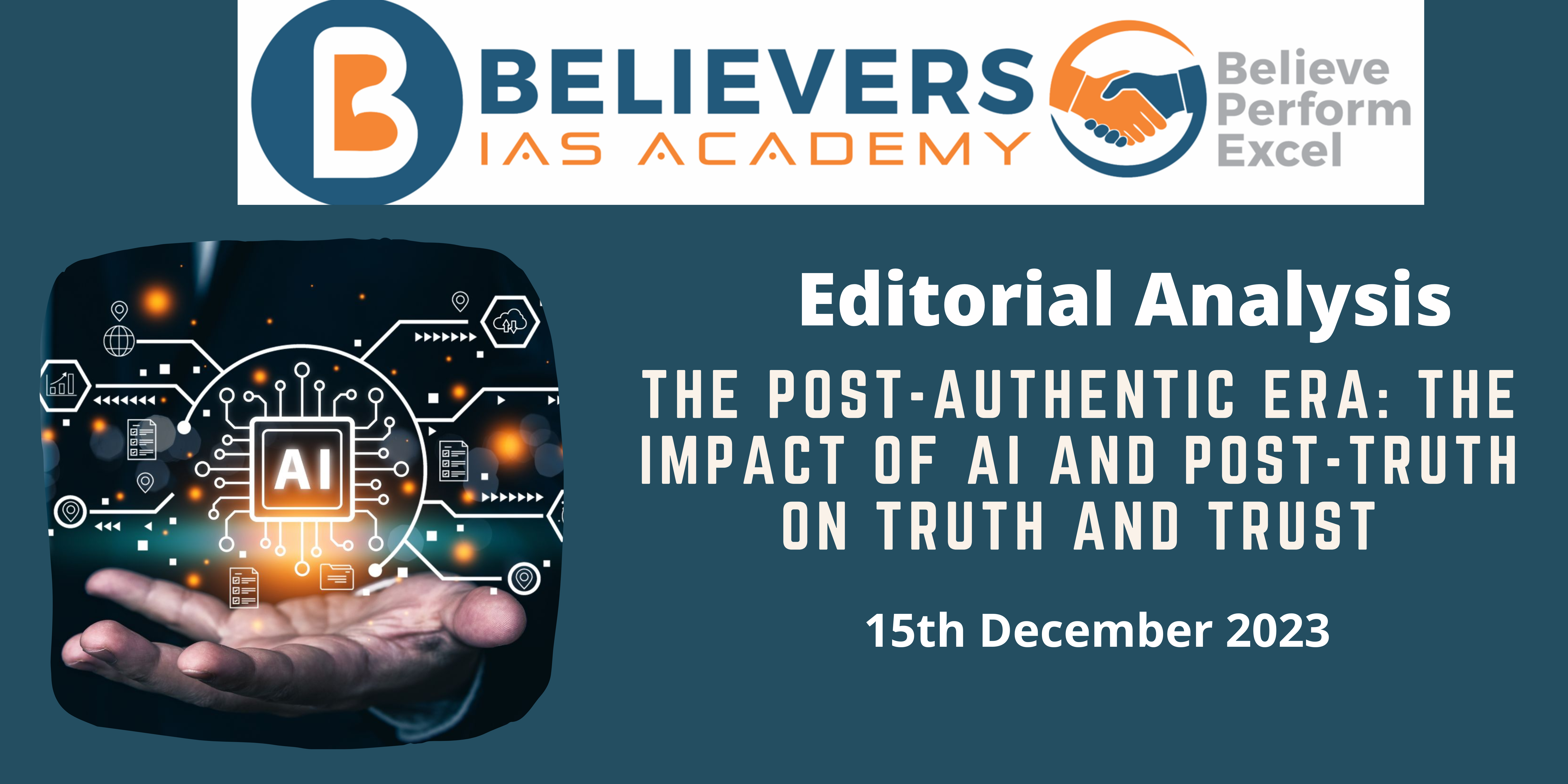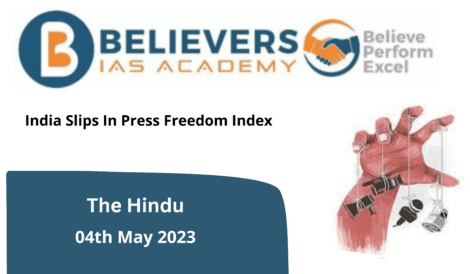The Post-Authentic Era: The Impact of AI and Post-Truth on Truth and Trust
Context:
Merriam-Webster’s selection of “authentic” as the word of the year for 2023 follows the 2022 choice of “gaslighting,” indicating a societal shift in grappling with reality and truth. As technology, especially AI, continues to shape our lives, the concept of authenticity is undergoing a transformation.
Relevance:
GS-03 GS-04 (Science and Technology)
Prelims:
- Generative Artificial Intelligence
- AI
- Generative Adversarial Network
- Variational Autoencoders (VAEs)
- National Strategy for Artificial Intelligence
Main Question:
Discuss whether the increasing influence of AI and the prevalence of post-truth dynamics jeopardizing the authenticity of information and eroding societal trust. (250 words)
Dimensions of the Article:
- Authenticity in the Age of AI and Deep Fakes
- The Rise of AI-Generated Content: Challenges and Implications
- Integrity Concerns in the Post-Authentic Age
- Seeking Authenticity in a Post-Truth World
Authenticity in the Age of AI and Deep Fakes
- The term “authentic” takes center stage as societies grapple with the consequences of living in an AI-driven era. The boundary between the “real” and the “fake” has become increasingly blurred, with AI-powered deep fakes creating realistic-looking content, from opinion articles to paintings. The article raises questions about whether the rise of fake news and the post-truth world can be attributed to advancing technology and its impact on the perception of authenticity.
- Celebrity Culture and Identity: Authenticity is closely intertwined with celebrity culture and identity. Figures like Elon Musk advocate for authenticity on social media, while celebrities, such as Taylor Swift, strive for an “authentic voice” and “authentic self.”
- Post-Truth World: The emergence of the post-truth world, marked by the prevalence of misinformation and fake news, is explored. The article questions whether figures like Donald Trump played a role in shaping this era or were products of it.
The Rise of AI-Generated Content: Challenges and Implications
- A significant shift in the authenticity landscape is observed with the rise of AI-generated content. From realistic images of public figures to manipulated audio and video clips, AI’s capabilities raise concerns about the potential for irreversible damage before the identification of fakes.
- Infocalypse Warning: AI scientist Nina Schick warns of an impending “Infocalypse,” describing it as the most significant information and communications crisis in history. The blurring of boundaries between mainstream and social media contributes to the dissemination of fake news.
- Trust Erosion: The erosion of trust becomes a significant casualty in the post-authentic age. Doubt is cast on the authenticity of any information, contributing to what journalist Michael Grothaus termed as a society where we “Trust No One.”
Integrity Concerns in the Post-Authentic Age
- Integrity concerns come to the forefront as the lines between truth and falsehood become increasingly hazy. Researchers and journal editors express worries about the potential for AI to create convincing text and data, leading to allegations of falsified or incorrect information on critical topics.
- Challenges to Integrity: The post-authentic age poses challenges to data integrity, with concerns about falsification of data on crucial societal topics, including GDP, employment, inflation, and COVID-19-related statistics.
- Dystopian Future: The article contemplates the trajectory towards a dystopian future where skepticism prevails, and trusting any information at face value becomes a rare occurrence.
Seeking Authenticity in a Post-Truth World
- Despite the challenges posed by AI and the post-authentic age, the article concludes by acknowledging humanity’s ongoing strive for authenticity and a trustworthy future.
- The aspiration for an illuminating and honest path forward persists, even in the face of the dystopian shadows cast by the erosion of trust.
Conclusion:
- While the post-authentic era fueled by AI poses significant challenges to truth and trust, the quest for authenticity remains a guiding light. The article highlights the importance of addressing societal issues, fostering trust, and aspiring for a future where authenticity prevails despite the dystopian shadows cast by the post-truth era.




